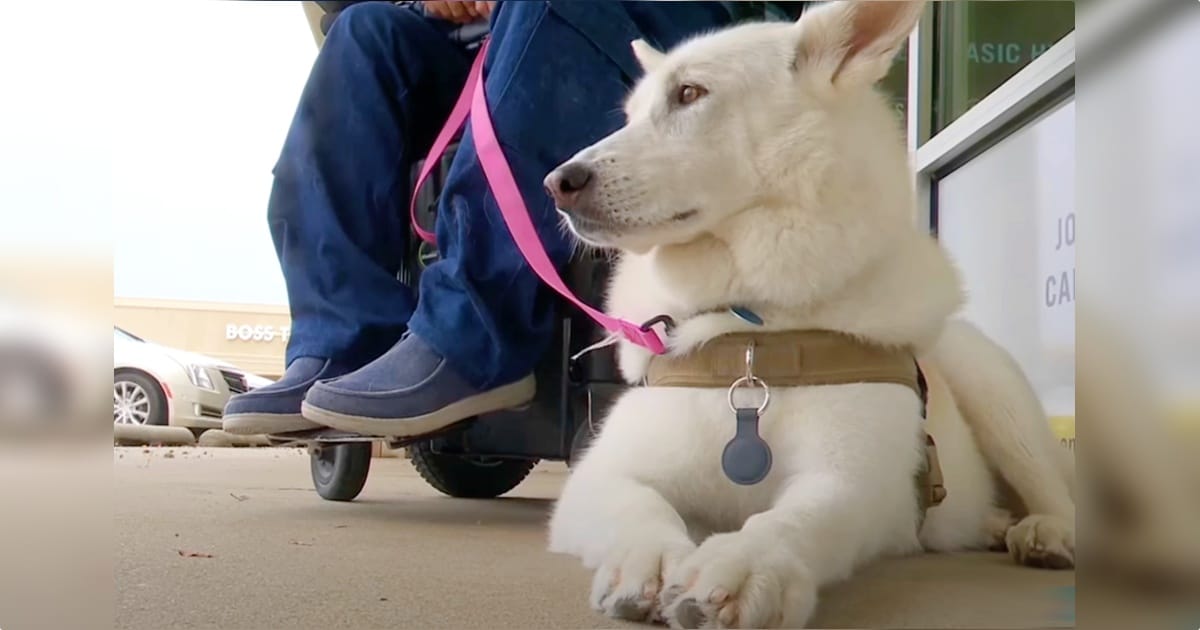 Shutterstock
Shutterstock
Dogs have been beloved companions to humans for thousands of years, but science reveals that they bring many physical and mental health benefits beyond their loyalty and affection. From reducing stress to boosting physical activity, dogs profoundly impact their owners’ well-being. Research has shown that having a dog alone can lower blood pressure, alleviate anxiety, and even improve heart health. For those who already adore their four-legged friends, science proves that these loyal companions are more than just pets—they’re powerful health allies.
Lower Stress Levels
 Shutterstock
Shutterstock
Having a dog around has been scientifically proven to reduce stress. Studies show that spending just a few minutes petting a dog increases oxytocin, the “love hormone,” while decreasing cortisol, the stress hormone. This natural calming effect is one reason dogs are often found in therapy settings, comforting patients and easing anxiety. The rhythmic action of petting a dog and their calm, reassuring presence can bring comfort in stressful moments. This effect makes dogs excellent companions for those dealing with high-stress environments, offering a soothing presence always by your side.
Boost Physical Activity
 Shutterstock
Shutterstock
Dogs need daily exercise, which motivates their owners to get outside and move. Studies show that dog owners are more likely to meet their daily exercise goals than non-dog owners. Taking a dog for a walk, jog, or even a game of fetch adds physical activity to your routine, promoting cardiovascular health and helping maintain a healthy weight. Many owners find that walking their dog becomes an enjoyable routine, benefiting their dog and their owner’s health. Exercise becomes a daily commitment with a dog around, often without even realizing it.
Lower Blood Pressure
 Shutterstock
Shutterstock
Dog ownership has been linked to lower blood pressure, particularly by petting a dog. This calming interaction not only releases oxytocin but also helps slow the heart rate, which can reduce blood pressure levels over time. Research indicates that dog owners have a lower risk of developing hypertension compared to those without pets. The stress-relieving effects of having a dog around, combined with the physical exercise they encourage, all contribute to healthier blood pressure levels, making dogs a natural remedy for better cardiovascular health.
Improve Heart Health
 Shutterstock
Shutterstock
The presence of a dog can improve overall heart health and even reduce the risk of heart disease. Studies show that pet owners, particularly dog owners, have a lower risk of heart attack and heart-related issues. Dogs help to lower cholesterol and triglyceride levels, likely due to increased physical activity and reduced stress. Their unconditional love and loyalty also encourage emotional stability, which positively impacts heart health. With a dog as a companion, you’re not just gaining a friend but also benefiting from a furry protector of your cardiovascular health.
Combat Loneliness
 Shutterstock
Shutterstock
For those who live alone or struggle with feelings of isolation, dogs provide companionship that reduces loneliness. Studies reveal that pet owners report feeling less lonely than those without pets, thanks to the consistent companionship and unconditional love dogs provide. Dogs are highly social animals that offer comfort through their affectionate behavior and eagerness to be close to their humans. Their constant presence helps combat loneliness, especially for elderly individuals or those with limited social interactions. Many people find a renewed sense of connection and companionship by having a dog
Alleviate Depression Symptoms
 Shutterstock
Shutterstock
Owning a dog has been shown to reduce symptoms of depression by increasing levels of dopamine and serotonin, hormones associated with happiness. Dogs offer a non-judgmental presence and unconditional love, which can be incredibly comforting for those struggling with mental health issues. Caring for a dog also brings a sense of responsibility and purpose, which can help alleviate depressive symptoms. Daily routines with a dog, from feeding to playing, encourage people to stay engaged with life. With their playful antics and boundless affection, dogs bring joy and positivity, helping lift spirits and ease feelings of sadness.
Provide Structure and Routine
 Shutterstock
Shutterstock
Dogs thrive on routine, which can benefit owners by providing structure to their day. Regular feeding, walking, and playtimes create a schedule that encourages owners to stay organized and consistent. This routine can be especially helpful for those dealing with anxiety or depression, as having a predictable daily rhythm brings comfort and stability. Studies show that structure can improve mental health, and dog ownership naturally creates that routine. By fulfilling the responsibilities of dog ownership, people often find themselves more motivated, with a renewed sense of purpose each day.
 Shutterstock
Shutterstock
Dogs are natural social connectors, helping owners meet new people and form friendships. Walking a dog often leads to interactions with other dog owners or animal lovers, building connections within the community. Dog parks, training classes, and pet-friendly events provide social opportunities that strengthen relationships and improve social well-being. Research shows that dog owners have more social interactions than those without pets, which can positively impact mental health. For people who find it difficult to socialize, having a dog often makes it easier to break the ice and start conversations.
Enhance Immune Function
 Shutterstock
Shutterstock
Studies indicate that children who grow up with dogs have stronger immune systems and are less likely to develop allergies and asthma. Early exposure to pet dander and other microbes found on dogs helps build a resilient immune system. Even adults benefit from a boost in immunity, as exposure to the diverse bacteria that dogs carry helps the body adapt to various pathogens. Regular interaction with a dog encourages the immune system to stay active, improving overall health and resilience to illness.
Aid in Child Development
 Shutterstock
Shutterstock
Dogs play a positive role in child development by teaching responsibility, empathy, and social skills. When children help care for a dog, they learn the importance of responsibility and how to prioritize the needs of another living being. Additionally, dogs can help shy or anxious children feel more comfortable, encouraging them to open up and express themselves. Studies show that children who grow up with dogs develop stronger social skills and are more empathetic toward others. Dogs provide companionship and emotional support, helping children learn valuable life skills.
 Shutterstock
Shutterstock
Many dog owners find comfort in having their dogs sleep nearby, which can improve sleep quality. Studies show that people who sleep with their dogs in the same room experience a sense of security, leading to better rest. The calming presence of a dog can reduce anxiety at bedtime, helping owners fall asleep more easily. For some, a dog’s rhythmic breathing and warmth create a comforting environment that promotes relaxation. With a dog by your side, you can enjoy a deeper, more restful sleep, waking up feeling refreshed and ready for the day.
When Your Dog Is Your Health Coach in Fur
 Shutterstock
Shutterstock
Dogs are more than just loyal companions—they’re nature’s health coaches. From helping you stay active to reducing stress and providing emotional support, dogs bring invaluable health benefits into their owners’ lives. Whether encouraging daily walks, improving heart health, or simply curling up beside you for a nap, these four-legged friends always look out for you. By enhancing physical and mental well-being, dogs offer unconditional love and support, proving they’re not just pets but true partners in living healthier, happier lives.

 3 weeks ago
13
3 weeks ago
13


















 English (US) ·
English (US) ·